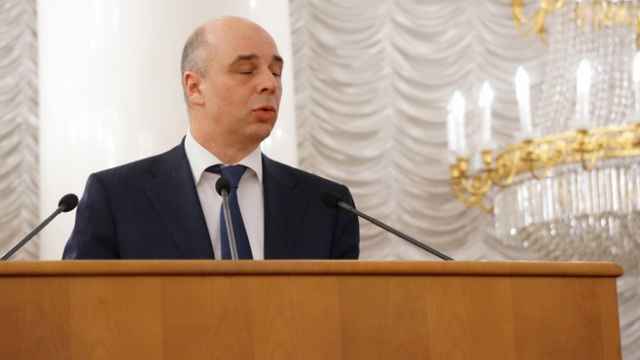The European Union decided on Tuesday to keep in place a package of economic sanctions against Russia over its support for separatist rebels in eastern Ukraine despite what it called "encouraging developments" on the ground after a cease-fire deal.
The 28-nation EU has imposed sanctions on Russia's finance, defense and energy sectors and has frozen the assets of some 140 Russian and Ukrainian individuals and companies over Moscow's role in Ukraine.
EU officials said it was too early to lift the sanctions despite the cease-fire agreed between Kiev and the rebels, which Brussels views as a first step towards ending the worst standoff between Russia and the West since the end of the Cold War.
"We are keeping the status quo," one official said after EU ambassadors reviewed the implementation of the cease-fire and a wider peace plan for the region agreed in Minsk on Sept. 5.
Envoys noted that "encouraging developments have been registered in the political process and in the implementation of some aspects of the Minsk Protocol," EU spokeswoman Maja Kocijancic said, adding that a permanent cease-fire was required.
The cease-fire has been marred by regular violations but has broadly held.
When the EU adopted its latest sanctions package on Russia, ambassadors had agreed they would review the implementation of the Ukraine peace plan by the end of September.
European Council President Herman Van Rompuy, who chairs EU summits, held out the possibility that, if the situation on the ground warranted it, sanctions could be amended, suspended or even fully repealed.
However, EU diplomats said there was no question of easing the sanctions on Russia at this stage.
"Nobody even talked about the possibility (of lifting them), given the situation on the ground," another official said.
Seven Ukrainian soldiers were killed on Sunday when a separatist shell hit their armored personnel carrier, a military spokesman said, the largest single number of Ukrainian soldiers killed since the cease-fire began.
NATO said last week it had observed a significant withdrawal of Russian forces from inside Ukraine, but some Russian troops remained inside the country and "many thousands" remain deployed near the border.
Moscow denies sending troops into Ukraine or arming the rebels, despite what the West says is incontrovertible evidence.
The ambassadors meeting in Brussels asked EU officials to continue monitoring the situation in Ukraine till the end of October, when a review of the effectiveness of the sanctions in place against Russia is already scheduled, diplomats said.
The EU has been split over the sanctions imposed against Russia over its annexation of Ukraine's Crimea region in March and its support for the separatists in eastern Ukraine.
Some EU politicians, such as Slovak Prime Minister Robert Fico and Hungarian Prime Minister Viktor Orban, have been openly scornful of the sanctions.
Many governments are wary of antagonizing Russia, the bloc's leading energy supplier, and fear more Russian trade retaliation. Russia has already responded to the EU and U.S. sanctions by banning imports of most food from the West.
But the EU's nominee to take over enlargement policy at the European Commission, Johannes Hahn, said Tuesday the bloc was united in its condemnation of Russian support for the rebels in eastern Ukraine.
"Russia should not underestimate the EU's resolve to stand by its principles," Hahn told EU lawmakers at his confirmation hearing. "Until territorial sovereignty has been restored (in Ukraine), we cannot make any concessions to Russia."
A Message from The Moscow Times:
Dear readers,
We are facing unprecedented challenges. Russia's Prosecutor General's Office has designated The Moscow Times as an "undesirable" organization, criminalizing our work and putting our staff at risk of prosecution. This follows our earlier unjust labeling as a "foreign agent."
These actions are direct attempts to silence independent journalism in Russia. The authorities claim our work "discredits the decisions of the Russian leadership." We see things differently: we strive to provide accurate, unbiased reporting on Russia.
We, the journalists of The Moscow Times, refuse to be silenced. But to continue our work, we need your help.
Your support, no matter how small, makes a world of difference. If you can, please support us monthly starting from just $2. It's quick to set up, and every contribution makes a significant impact.
By supporting The Moscow Times, you're defending open, independent journalism in the face of repression. Thank you for standing with us.
Remind me later.





